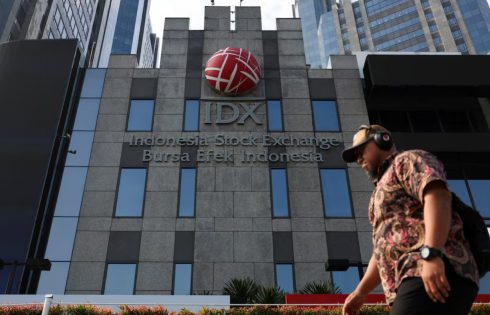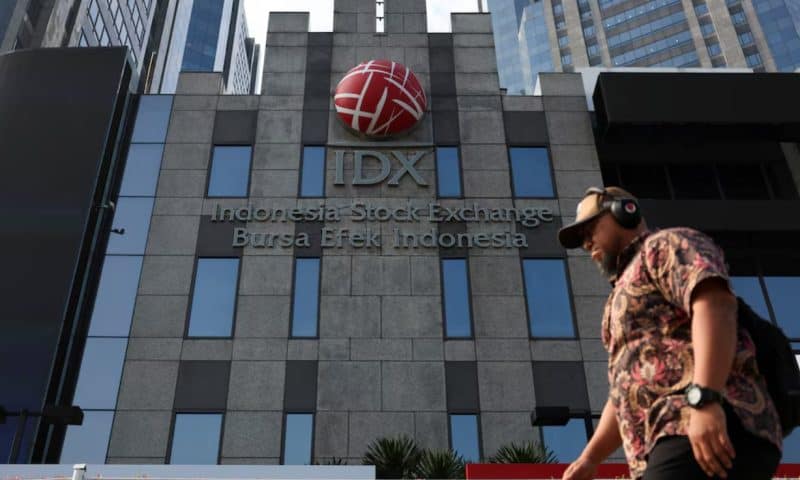
JAKARTA, April 11 (Reuters) – Indonesia’s $48 billion social security fund BPJS Ketenagakerjaan, the country’s largest institutional investor, aims to raise the share of local equities in its portfolio to up to 20% within three years, a top official told Reuters on Friday.
Asked about this week’s local stock market (.JKSE), opens new tab tumble following the global turmoil caused by U.S. tariffs, Edwin Ridwan, the agency’s director of investment development, said it had created room for the fund to invest in undervalued shares.
The state-owned fund has been increasing its investment gradually in stocks with big market capitalisation, he said, in sectors such as banking, telecommunications, commodities and consumer goods.
“These are the conditions where people are selling, if we look at history … whenever the market overshoots, people are selling, it’s the best time to buy,” he said in an interview, referring to the financial crises of 1998 and 2008 and the COVID-19 pandemic.
“The window has started to open up for us to increase our exposure to equities, because we need volume, we need liquidity, and with everybody
selling, that liquidity is being provided.”
Edwin added that the fund was targeting a 13% year-on-year increase in returns in 2025.
BPJS Ketenagakerjaan’s current exposure to equities was at around 10% or equivalent to $4.8 billion, either directly in the stock market or through mutual funds, it said, adding that its target is to expand that to between 15% and 20% within three years. The largest portion is invested in bonds, and the rest is in deposits and other instruments.
Indonesia’s stock market tanked when it reopened on Tuesday after an extended holiday break, triggering a 30-minute trading halt in response to the global turmoil over U.S. President Donald Trump’s tariffs announcement days earlier. The market has since regained some of its losses.
President Prabowo Subianto is looking to increase the state’s role in achieving its 8% growth target, including via the setting up of a new sovereign wealth fund managing more than $900 billion in assets as well as a state firm to run confiscated palm plantations.
Since the global turmoil hit Indonesian markets, the country has also eased buyback rules for publicly listed companies, including state-run firms, and Bank Indonesia intervened “aggressively” to support a plummeting rupiah.
Asked whether there was any order from the government for BPJS to support the falling stock market, Edwin said the agency was “quite independent.”
‘TOO BIG FOR THE MARKET’
The agency has been trying for years to get government approval to invest in overseas financial markets, especially equity markets, Edwin said, citing its need to have more options for its large funds.
“Basically we have a very limited universe…so we can’t get in and out easily and we can’t buy when other people buy,” he said, referring to the risk of crowding out the market.
The agency’s assets under management have been expanding at a rate of 13% to 14% per year, and it receives up to 10 trillion rupiah ($595 million) per month from premiums paid by members, Edwin said, explaining why it needs to find more investment instruments.
Possible pressure on the rupiah has been one consideration against overseas investment, Edwin said, but he added that foreign exchange supply could be improved via return repatriation.
($1 = 16,790.0000 rupiah)

